Souls at Sea

Brief Synopsis
Cast & Crew
Henry Hathaway
Gary Cooper
George Raft
Frances Dee
Henry Wilcoxon
Harry Carey
Film Details
Technical Specs

Synopsis
In 1842 in Philadelphia, sailor Michael "Nuggin" Taylor faces trial on allegations that he caused the deaths of nineteen people from the ship William Brown . His trial is witnessed by Barton Woodley, a British secret service agent who intends to come to Michael's defense if the verdict should find against him. In court Michael's story is told: When slaves attack Granley, a renowned slaver and the brutal captain of the Blackbird , his dying command is that seaman Powdah captain the vessel and Michael, a passionate abolitionist and friend of Powdah, keep the ship on course to meet with the slave traders. Michael advises Powdah to steer the ship toward a British patrol vessel in order to keep tabs on them, and along the way, they release the slaves onto the coast. The patrol ship captures the Blackbird , and when Michael and Powdah refuse to reveal what happened to the slaves, they are hanged by their thumbs from the halyard. While they are hanging, Powdah confesses to Michael that although he is a seaman, he is afraid of the water, and is now afraid he will fall into the ocean. In order to save his friend, Michael tells his captors, including Lieutenant Stanley Tarryton, that they will confess. Later, Powdah tries to protect Michael by telling them that although he has worked slaving ships for years, Michael only recently came aboard and did not realize it was a slave ship. The captain is suspicious that the Blackbird was caught so easily and suspects that Michael deliberately steered toward them so they would be captured. In Liverpool, Michael and Powdah are acquitted for their actions, and Woodley, who is out to end slavery, takes an interest in Michael, as every ship Michael has worked on has encountered trouble and has seen the release of its slaves. Unknown to Powdah, Woodley enlists Michael to work for British intelligence and entrap the ring of slavers. At the same time, Tarryton meets with his business partner, Pecora, and they plan to take on Granley's established slave trading route. In order to do this, they immediately purchase the ship William Brown , which is departing the next morning for Philadelphia and Savannah, Georgia, and is considered the fastest packet on the seas. Michael also boards the William Brown at dawn carrying Granley's secret plans, and is met on board by Powdah. Tarryton is suspicious of Michael and is especially hostile when Michael falls in love with his sister Margaret. When Tina, the young daughter of immigrants traveling to the United States, knocks over an oil lamp below deck, a fire breaks out and ignites gunpowder, causing massive explosions. Michael struggles with Tarryton for the plans and knocks Tarryton out. The rest of the ship catches fire, and Powdah finds his girl friend, Babsie, with whom he had only just fallen in love, pinned under a fallen beam just before she dies. As Michael helps people into a lifeboat, Tarryton attacks him, but drowns after they struggle in the water. Bereft, Powdah stays on board to be with Babsie as the ship sinks, and knocks Michael into the lifeboat so he will not stop him. A mast falls into the lifeboat, and when Michael revives, he urges his fellow survivors to hang onto the edges of the boat so that it will not founder. Unfortunately, the boat is overcrowded, and the desperate people are causing it to sink. Michael shoots several people, who fall into the ocean to their death, in order to save the lives of the others. At the trial, Michael clearly feels remorse for the actions he was forced to take, and refuses to defend himself against accusations that he is a slaver. After a violent argument erupts in the courtroom when several of the survivors deny the accusations against Michael, the courtroom is cleared. Woodley suddenly appears to defend Michael and reveals enough evidence in Michael's favor to change the court's initial decision of guilty and call for a retrial. Michael and Margaret then reunite.

Director

Henry Hathaway
Cast

Gary Cooper

George Raft

Frances Dee
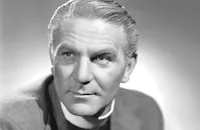
Henry Wilcoxon
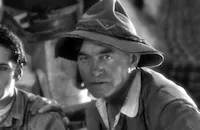
Harry Carey
Olympe Bradna

Robert Cummings
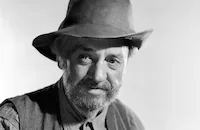
Porter Hall

George Zucco

Virginia Weidler
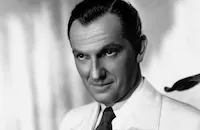
Joseph Schildkraut

Gilbert Emery

Lucien Littlefield
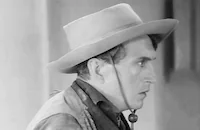
Paul Fix

Tully Marshall
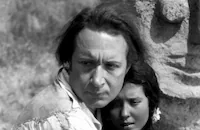
Monte Blue
Stanley Fields

Fay Holden
Jameson Thomas

Cecil Cunningham
Grace Hampton
Colin Tapley
Clyde Cook

Luana Walters
Stanley Andrews
George Lloyd
G. Pat Collins
Mathew Betz
Francis Ford
Rollo Lloyd
Wilson Benge
Colin Kenny
Craufurd Kent
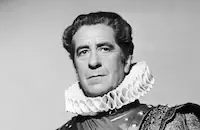
Robert Warwick
John Elliott
J. M. Sullivan
Allan Cavan

Phillips Smalley
Lionel Braham
Gloria Williams
Ethel Clayton
Phyllis Godfrey
Frank Benson
David Clyde
Mary Gordon
Herbert Clifton
Carlyle O'rourke
Paul Walton
Rolfe Sedan
Eugene Borden

George Andre Beranger
Lee Shumway

Ward Bond
Viva Tattersall
Arthur Blake
Harvey Clark
Forbes Murray
Davison Clark
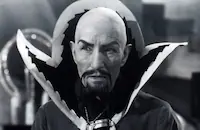
Charles Middleton
Olaf Hytten
Belle Mitchell
Henry Mowbray
Gunnis Davis
Forrester Harvey
Jane Weir

Lina Basquette
Pauline Haddon
Lowell Drew
William Stack
Paul Stanton
Leslie Francis
George Macquarrie

Edward Van Sloan
Ben Taggart
Norman Ainsley
Alonzo Price

Lee Phelps
Ted Oliver
Dick Rich
Bob Mckenzie
Jane Keckley
Earl Pingree
Marty Faust
Fritzi Brunette
Margaret Daggett
Betty Lorraine
Erin La Bissoniere
Virginia Kami
Lillian Dean
Don Rowan
Agnes Ayres
Beth Hartman
Peggy Montgomery
Crew
Roland Anderson
John Cope
Hans Dreier
A. E. Freudeman
Merritt Gerstad
W. Franke Harling
Edith Head
Ellsworth Hoagland
Gordon Jennings
Grover Jones
Bernard Kaun
Charles Lang Jr.
William Lebaron
John Leipold
Ted Lesser
Harry Mills
Boris Morros
Ralph Rainger
Leo Robin
Milan Roder
Richard Talmadge
Dale Van Every
Hal Walker
Adolph Zukor

Photo Collections
Videos
Movie Clip




Film Details
Technical Specs

Award Nominations
Best Art Direction
Best Director
Best Score
Quotes
Trivia
Notes
An opening prologue states that the "story was inspired by a trial for mass murder on the high seas [which] a century ago made legal and maritime history." According to the pressbook, the trial is recorded in the Philadelphia Public Ledger and is based on an incident that occurred on April 19, 1841 when the William Brown struck an iceberg and capsized. After crew and passengers got into the two available lifeboats, leaving thirty-one aboard the ship to drown, "seaman Alexander William Holmes assumed command and dumped excess [persons] overboard." A Hollywood Reporter news item noted that Jo Swerling was to write "epilog scenes" for this film. Swerling's contribution to the final film has not been determined. A news item in Hollywood Reporter noted that Frances Farmer was considered for the lead role. Additional news items in Hollywood Reporter reveal that George Raft terminated his contract with Paramount in November 1936 due to a dispute over the roles he was given, including his role in Souls at Sea. Although production was scheduled to begin in late Oct, it was postponed due to the threat of a strike by the Pacific Coast Maritime workers, according to Hollywood Reporter, and by Paramount's search for another co-star. Hollywood Reporter noted that Lloyd Nolan was first considered, but later Anthony Quinn was selected to replace Raft. At this time, however, Raft and Paramount amended their rift, Raft's contract was renewed and he accepted the role of Powdah. Production was scheduled to resume on 21 November 1936.
Press releases claimed the following about the production: Paramount constructed a special set with a huge tank of water and the quarterdeck of a ship for shipboard scenes. For further authenticity, the studio chartered sailing ships for ocean shots and dock scenes, and the square-rigger Star of Finland was used as the William Brown. Grant Leenhauts hired sailors who knew how to work a square-rigger to appear aboard ship. Some scenes were filmed off Santa Catalina Island, CA. According to modern sources, the film was originally intended to rival M-G-M's Mutiny on the Bounty and to be released as a road-show, however, the plans were scaled down, as was the film. Although an actress portraying Queen Victoria is credited in the CBCS, modern sources note that the scene of Queen Victoria's court was one of many deleted from the film before its general release in theaters. The film was nominated for the following Academy Awards: Best Assistant Director, Hal Walker; Best Interior Decorations, Hans Dreier and Roland Anderson; and Music (Best Score), Paramount Studio Music Dept., Boris Morros, head score by W. Franke Harling and Milan Roder. Also based on a similar story is the 1956 British film Seven Waves Away, known in the United States as Abandon Ship!, directed by Richard Sale and starring Tyrone Power, Mai Zetterling and Lloyd Nolan.

Miscellaneous Notes
Released in United States 1937
Alan Ladd had a bit part in the film.
Released in United States 1937











